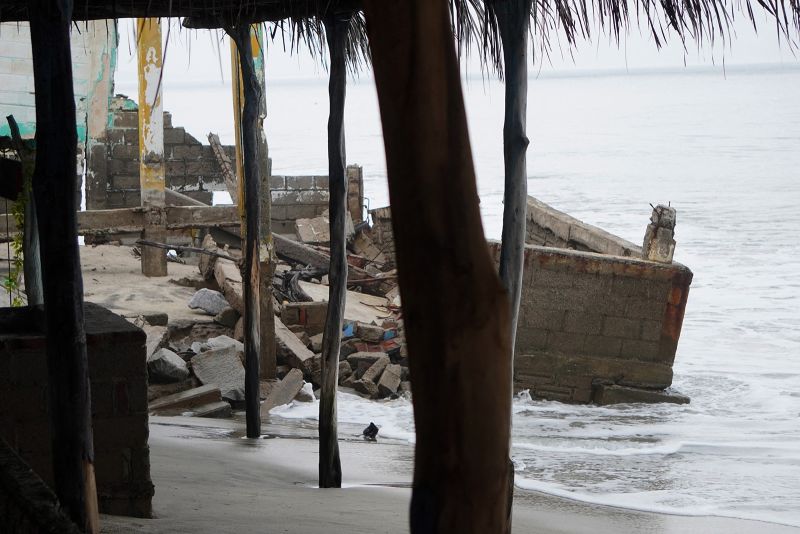Hurricane John struck Mexico’s southern coast on Monday night after rapidly strengthening into a major Category 3 storm, triggering warnings of ‘life-threatening’ floods and mudslides.
Packing maximum sustained winds of 120 mph (193 kph), the storm made landfall south-southwest of the city of Marquelia in Guerrero state at around 9:15 p.m. local time, according to the National Hurricane Center.
Just a day ago, the storm was pacing at 35 mph (56 kph), but it underwent two rapid intensifications in a 24-hour period, ramping up speed by more than three times.
“This heavy rainfall will likely cause significant and possibly catastrophic, life-threatening flash flooding and mudslides to the Mexican States of Chiapas, Oaxaca, and southeast Guerrero, particularly in areas near the coast,” the center said.
Oaxaca state is a popular tourist spot known for its beautiful landscapes and beaches.
Oaxaca’s governor said the state government had evacuated 3,000 people and set up 80 shelters, while authorities had suspended classes in several costal zones on Tuesday, the Associated Press reported.
Businesses in Puerto Escondido, a tourist destination in the southern part of the state, have closed after authorities ordered the suspension of all work on the area’s main beaches, the news agency reported.
Ana Aldai, who works for a restaurant there, told AP she was “a little bit distressed” because notice from authorities came quickly.
“There was no opportunity to make the necessary purchases,” she said.
Torrential rainfall of 10 to 20 inches, with isolated totals near 30 inches, could pummel areas along the Oaxaca coast to southeast Guerrero until Thursday.
The coastal areas of Chiapas are also expected to be hit by rainfall of six to 12 inches, with isolated totals around 15 inches, during the same period.
The rainfall could cause a life-threatening storm surge, producing significant coastal flooding near the landfall location, the National Hurricane Center said.
The surge will be accompanied by large and destructive waves in coastal areas, it added.

